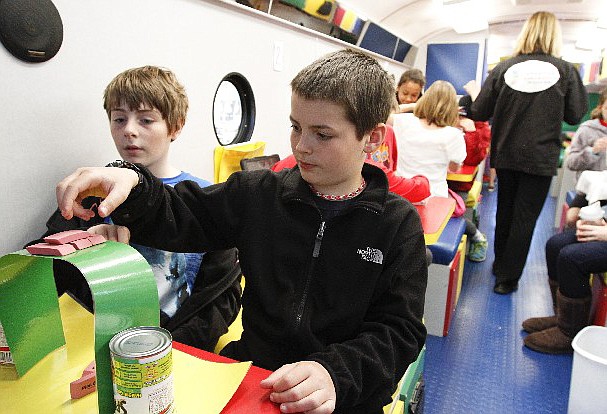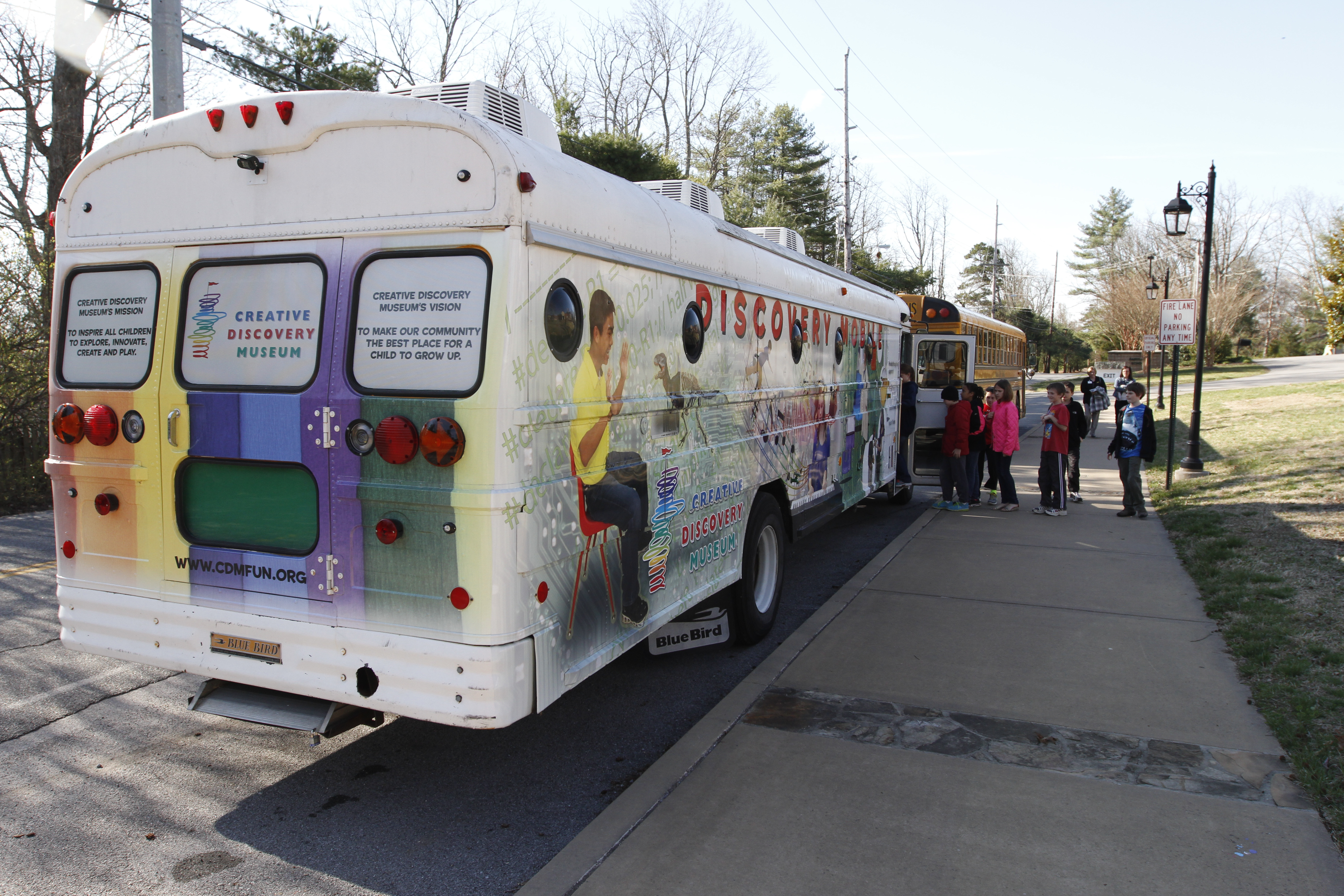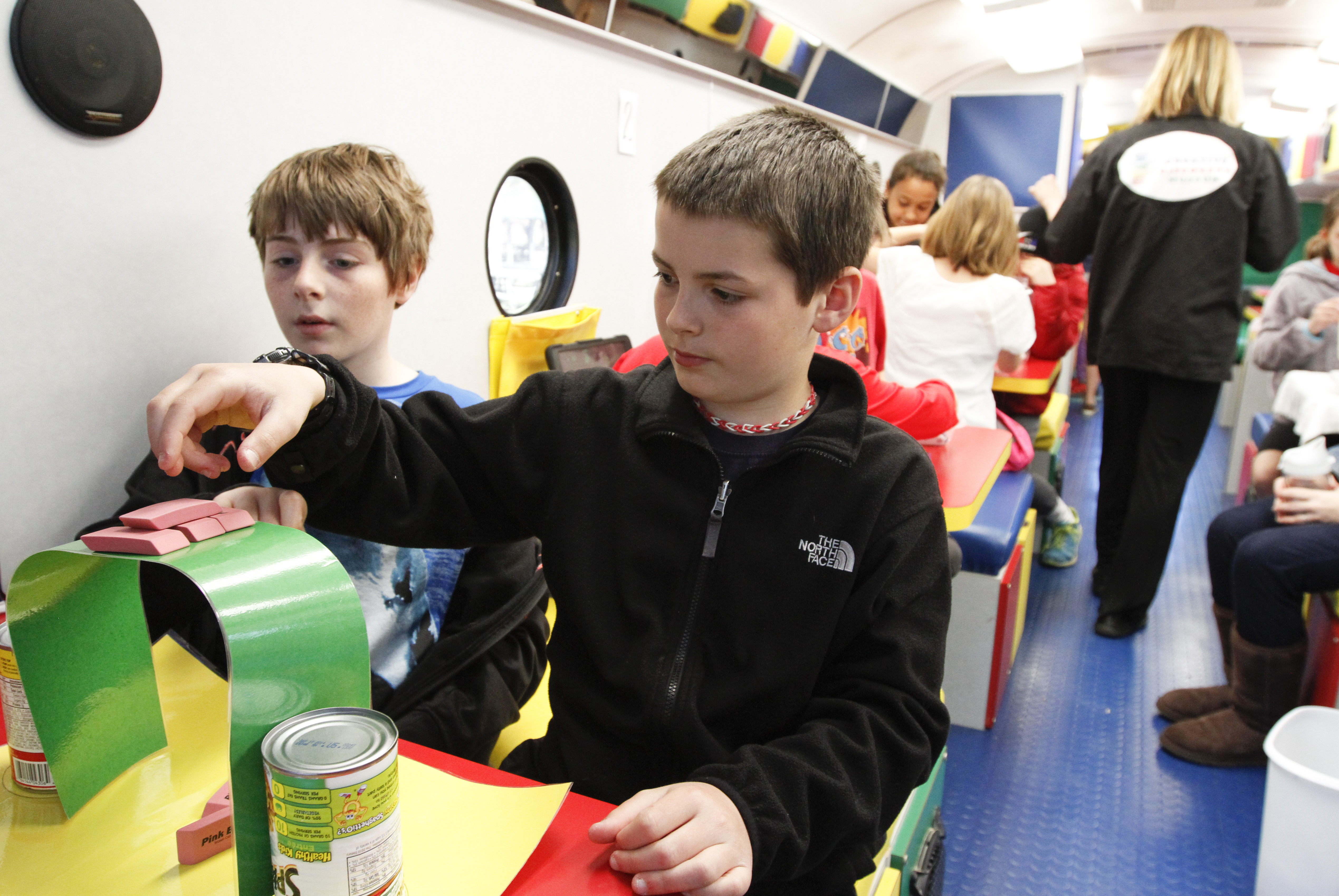FAST FACTIn the typical elementary school, more than half the day's instructional time often is committed to math and reading. Source: Aimee Randolph, lead director of instruction for Hamilton County SchoolsHOW TO HELPThe Creative Discovery Museum is seeking donations for equipment and upgrades for its Discovery Mobile. To help, visit causeway.org/cause/view/discovery-mobile.
Think of it like the "The Magic School Bus," just with less magic and more science.
The Creative Discovery Museum's new Discovery Mobile is reminiscent of the whimsical children's book series, in which students travel to unthinkable locations like outer space or the human body. In real life, the museum's bus serves as a science lab on wheels taking hands-on lessons to elementary school students across the region.
The science, technology and engineering projects that teachers - all of whom are state certified - can offer are especially helpful for elementary schools. It's often difficult for teachers in lower grades to come up with the time or resources to pull off such hands-on experiments with so much of the elementary school day focused on reading and math skills.
"We're able to do things with them that it would be difficult for teachers to do. This is really an extension of that capability," said Lynda LeVan, director of external affairs for the museum. "Elementary schools don't have science labs. Most of them don't have a microscope in the whole school."
The Discovery Mobile isn't your typical school bus.
The bright white exterior and porthole windows make it a can't-miss experience. Inside, you won't find the typical rows of brown seats. The bus is decorated with bright primary colors and mirrors and is filled with iPads, flat-screen TVs and science equipment. On board, teachers move about with the grace of flight attendants, squeezing through the crammed quarters to lead student projects.
On a recent visit to Fairyland Elementary, museum-staffed teachers rotated fifth-graders through lessons on electrical engineering, civil engineering, foundation building and chemical engineering, among other topics.
For nearly a decade, the children's museum has dispatched its educators across the region to help supplement lessons at area schools. Its various outreach programs reach 40,000 students annually. And organizers expect the Discovery Mobile to eventually reach up to 10,000 students annually.
With schools struggling to come up with the time or money needed for field trips, the mobile lab can help those teachers and students who can't make a field trip to the actual museum in downtown Chattanooga. Schools pay about $450 for a bus visit, which is generally cheaper than the admission and transportation costs of a full field trip to the museum.
"This is the next best thing - bringing the museum to them," LeVan said.
Officials say they are seeking sponsors to cover the cost of bus trips to schools, especially for schools in poorer areas.
The bus was donated by Walker County Schools, which hadn't been using it for several years. With cash and in-kind donations, the museum added about $20,000 in upgrades but expects to spend about $30,000 on improvements and supplies in all.
On board, students learn about all manner of science and engineering topics. They can learn about electricity by creating circuits, learn about sound by building a sound-proof barrier or explore chemistry basics by mixing a polymer. Lessons are customized to introduce or reinforce topics being taught in class.
"We just bring that extra to the classroom," said Jayne Griffin, the museum's director of education.
And these types of activities can add greatly to the elementary curriculum.
In the typical elementary school, more than half the day's instructional time is often committed to math and reading, said Aimee Randolph, lead director of instruction for Hamilton County Schools.
Randolph, who has previously taught in elementary and middle schools, said the lower grades often focus on reading because it's the foundation for further learning. Science can sometimes get short shrift, mainly because teachers don't have the expertise.
"It's the content," Randolph said. "Many people don't have strong credentials in science content. They're not focused on that when they're getting their undergraduate degrees. But I think more and more you will see teachers focused on it, because it is hands-on."
She said she wants to see more hands-on science activities and projects in the elementary grades. And work like the Discovery Mobile can help meet that goal.
"We can't leave science out," she said. "I continue to think that as we focus on supporting our children becoming readers, writers and thinkers that science certainly has to be part of that. The idea of doing science is what I support - working in small groups, solving a problem."
Contact staff writer Kevin Hardy at khardy@timesfreepress.com or 423-757-6249.


